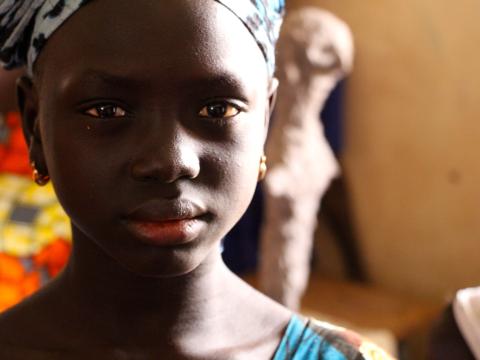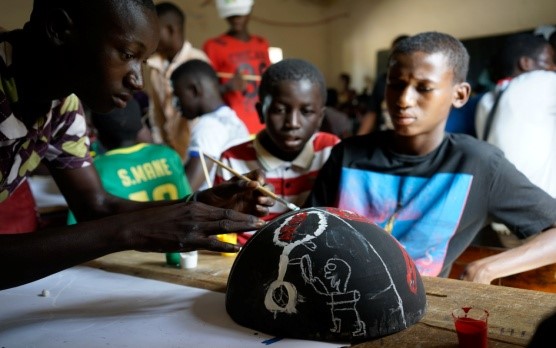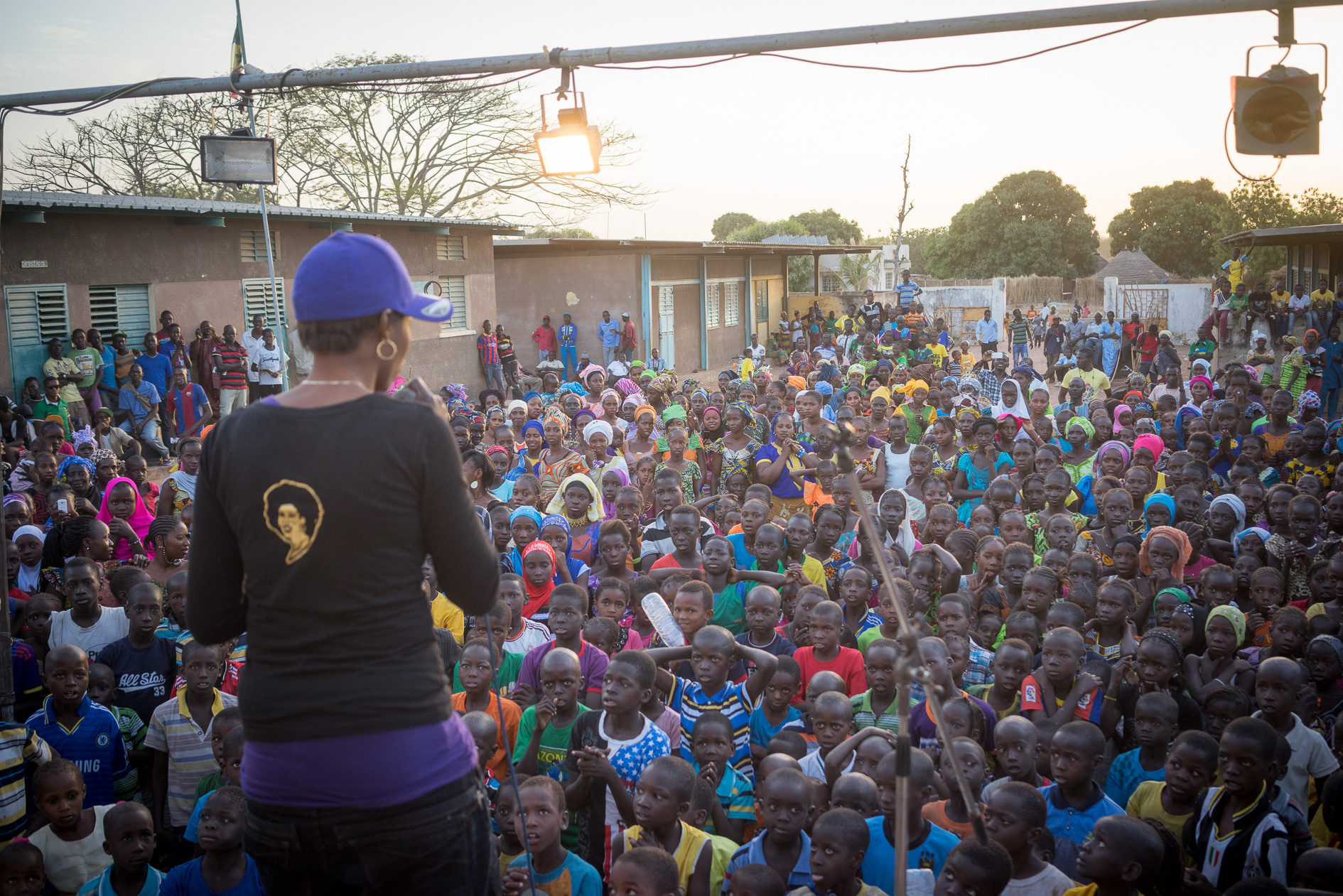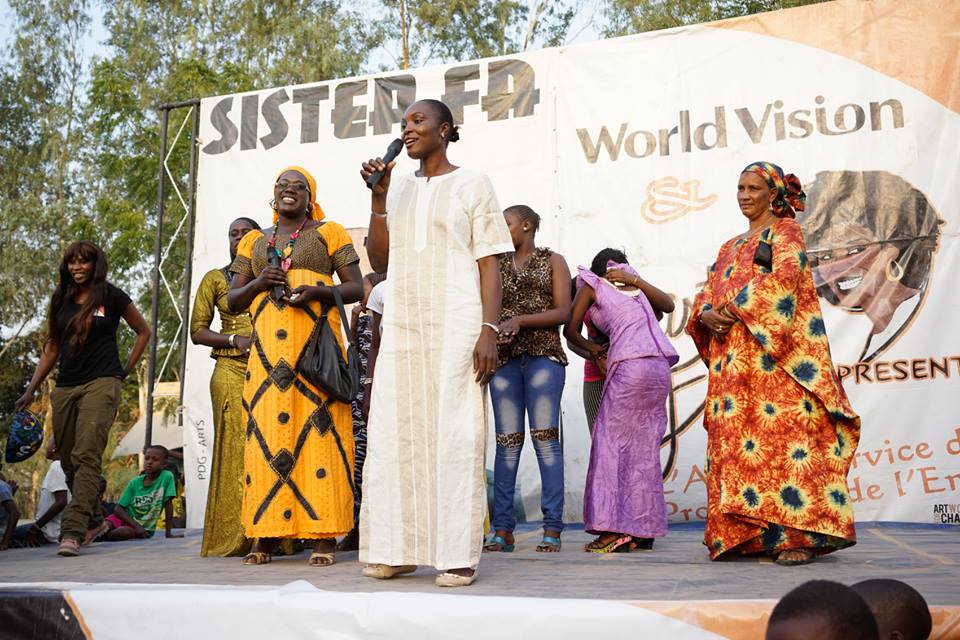World Vision: Taking a valiant stand

Despite her trembling hands and nervousness, Fatou still asked for the chance to speak. You could have heard a pin drop. Everyone wanted to know what this 12 year-old in the Dabo Collège d’Enseignement Moyen (CEM) had to say to the adults present. Her whole body was shaking and she could hardly hold the microphone that she had been given. She pressed on regardless: “I’m grateful to everyone but what I would like to say to the teachers is that they should stop giving us bonus points if all they want to do is seduce us.”
The occasion was a forum for all ages on the rights and responsibilities of the child, and Farmata’s heartfelt plea brought proceedings to a standstill. What could have possessed her? The fact of the matter is that a few months previously a teacher had got a student pregnant.
The Kolda region, where Sister Fa leads our ‘art for child protection’ project, shares a border with both the Gambia and Guinea Bissau. Many communities are a crossroads for the comings and goings of different cultures. However, when tolerance is confused with permissiveness, women, girls and children become the prey of individuals with a casual or transient attitude. Sexual abuse, early pregnancy and FGM are rife: about 35% of all recorded child abuse cases in the whole of Senegal occurred in the Kolda region alone during the year. Additionally, about 25% of women aged 14-49 and 13% of young girls undergo FGM, claimed the Director of Family Affairs at the Ministry of Women, Family and Childhood, Madame Ngom, when she visited the Kolda region in May 2016.
An art workshop brings the issues to life
Clearly the rights and responsibilities of the child are not being duly taken into consideration, which has sparked a campaign to raise awareness. Various art forms such as painting, dance and theatre have proven their worth in getting messages across to the wider public, but music seems to have the biggest effect. Through our ‘art for child protection’ initiative, singer/rapper Sister Fa has focussed on the situation in the Kolda region and made some major advances there in promoting child protection and rights, targeting specifically the Dabo ADP.
Farmata was right to expose child protection issues in this way. Her appeal opened up a wide-ranging debate on the sexual abuse of the young girls of her generation.
In traditional Senegalese society, allowing children to speak up is not very common, and Kolda is no exception. In addition, various taboos about sexuality serve to conceal abuse where the victims are children. They are often left suffering in silence for the sake of not rocking the boat: perpetrators are frequently a close relative, neighbour or friend of the family.
Farmata’s contribution and the debate that followed gave the Child Protection Project Coordinator from World Vision Senegal the chance to recap on different kinds of abuse that children experience. For good measure he also spelled out the sentences that offenders can expect to face.
The people in attendance took his address to heart, and after a lengthy exchange of views on the subject, the community as a whole resolved to do more to value children and improve their protection. It was agreed that child protection procedures in the community need to be more responsive in order to deal with cases of abuse more successfully. This boils down to all stakeholders in the Kolda Departmental Committee for Child Protection (CDPE) getting on board to make the Alert, Watch & Listening Committees (CAVEs) function better.
If art can be an effective medium for children to express themselves and demand their rights, it is essential to make such facilities widely available and sustainable. The long-term aim is to make every single child visible to one procedure of child protection or another (involving them in CAVEs, information campaigns in which they perform themselves, or in painting activities that illustrate children’s rights). In short, children should be playing an active role in advocating respect for their rights.
Sister Fa working the crowds
Communities often need children like Farmata who have the courage to ignite a debate about the abuses they suffer.
At World Vision Senegal we are all about empowering children in communities to express themselves publicly so that they can share their everyday trials and tribulations. The onus is also on family members, authority figures and all members of the community to show more zeal for exposing and reporting perpetrators so that they may be severely punished.


